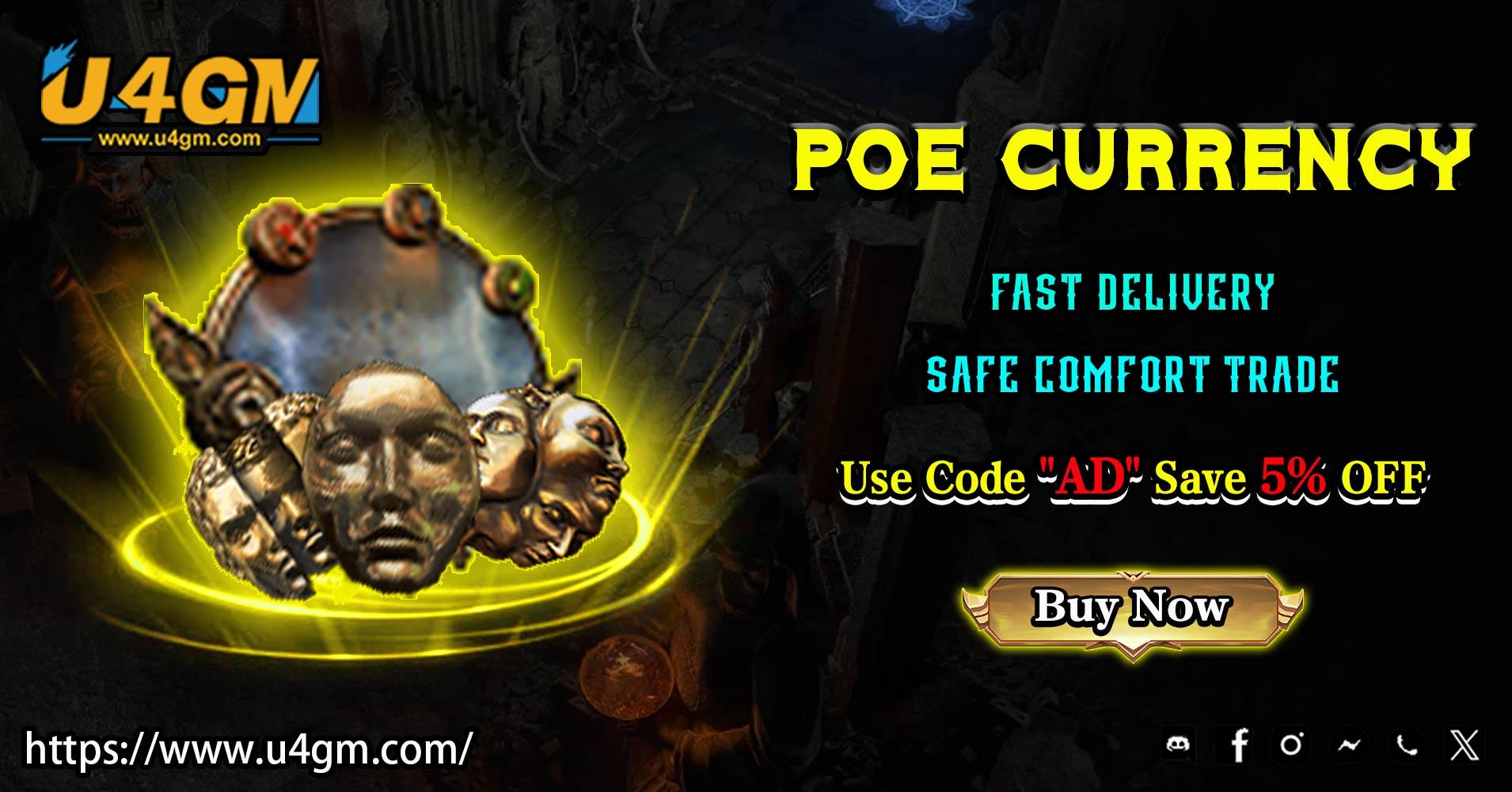The Emergence of POE Currency Barter Fairs
Path of Exile’s (POE) economy is unique among online role-playing games, relying entirely on a barter-based trading system rather than a universal gold currency. This decentralized market has given rise to various trading hubs, including barter fairs where players gather to exchange goods and currency without relying on traditional trade websites or automated price listings. These player-driven events often form in community Discord servers, private guilds, or in-game social spaces, where traders negotiate deals using a combination of POE currency, rare items, and crafting resources.
The concept of barter fairs in POE resembles real-world open markets, where pricing is fluid and determined by supply, demand, and negotiation. Unlike direct trades facilitated by online listings, barter fairs emphasize face-to-face interactions, bulk trading, and package deals that might not be possible in conventional one-to-one transactions. However, just as in real-world trade, these events are susceptible to trade restrictions, embargoes, and economic strategies that influence the flow of goods and currency.
How Trade Embargoes Impact path of exile currency sale Exchange
A trade embargo in POE refers to a situation where certain items or currencies are intentionally withheld from trade by individuals, groups, or entire communities. These embargoes can be the result of organized economic strategies, player disputes, or external influences such as game balance changes introduced by Grinding Gear Games (GGG).
- Guild-Imposed Trade Restrictions: Some high-level trading guilds establish embargoes on specific POE currencies or rare items to control market prices. By limiting the availability of valuable resources such as Divine Orbs, Mirror Shards, or Exalted Orbs, these groups can manipulate supply and demand dynamics, creating artificial scarcity that benefits their internal economy.
- Boycotts Against Specific Traders or Platforms: Occasionally, sections of the POE community initiate boycotts against certain trade platforms or well-known traders accused of price manipulation, unfair trading practices, or scamming. When a boycott gains enough traction, it can significantly impact the flow of POE currency within specific barter fairs and trade hubs.
- Event-Specific Embargoes: Some barter fairs introduce temporary embargoes on specific items or currencies to encourage alternative trade methods. For example, a barter fair might prohibit Chaos Orb transactions to encourage the use of alternative forms of payment such as Fossils, Resonators, or Fractured Items. These embargoes create dynamic trading environments that test players’ adaptability in a shifting economy.
Economic Strategies Behind buy path of exile currency Embargoes
Trade embargoes are not always imposed as acts of retaliation or restriction; in many cases, they serve as economic strategies designed to achieve specific goals. Players and trading groups leverage embargoes as tools for wealth accumulation, market stabilization, and even as social experiments within the game’s economy.
- Price Manipulation Through Scarcity: By deliberately withholding high-demand POE currencies or rare crafting materials, traders can inflate prices and increase profitability. If a major trading guild collectively decides to stop selling Exalted Orbs, the resulting scarcity can drive up the value of the orb, allowing the guild to sell at a premium once the embargo is lifted.
- Market Reset Strategies: Some embargoes serve as temporary market resets, where traders agree to pause transactions involving certain items to counteract inflation or price instability. When a specific item’s value becomes unpredictable due to an influx of newly farmed resources, a short-term embargo can stabilize pricing by allowing market forces to reset naturally.
- Encouraging Alternative Trade Mechanisms: In certain barter fairs, embargoes are introduced as a way to shift reliance away from conventional POE currency and towards item-based trade. By restricting high-value currency trades, players are encouraged to negotiate deals using alternative assets such as Scarabs, Breachstones, or Heist Contracts, diversifying the economy and reducing dependence on centralized trade hubs.
Challenges and Risks of Trade Embargoes in POE
While embargoes can be effective economic tools, they also introduce risks that traders and barter fair participants must navigate. Unregulated markets are prone to volatility, and embargoes can sometimes backfire, leading to unintended consequences such as price crashes, player frustration, or the rise of black-market trading.
- Unpredictable Market Reactions: While embargoes aim to control supply and demand, POE’s trade economy is highly unpredictable. If an embargo is prolonged, players might find alternative trade routes or farming methods that render the embargo ineffective, leading to unexpected market shifts.
- Loss of Trade Opportunities: Players who engage in embargo strategies risk losing potential trades, especially in fast-moving leagues where currency values change rapidly. If a trader refuses to sell Exalted Orbs for several days, they might miss out on peak demand periods, reducing potential profit margins.
- Underground Trading Networks: Embargoes can lead to the formation of black-market trading circles where players bypass restrictions by trading in secret Discord groups or private messages. This can undermine the goals of organized embargoes and create alternative economic systems outside of mainstream barter fairs.
The Future of path of exile currency Barter Fairs and Trade Embargoes
As POE continues to evolve with new leagues, mechanics, and crafting options, the dynamics of barter fairs and trade embargoes will likely shift as well. With each new expansion, player-driven economies adapt to changes in loot distribution, currency valuation, and crafting requirements, shaping the way barter fairs operate.
While embargoes will continue to be a part of POE’s evolving trade landscape, the success of these strategies will depend on player participation, market adaptability, and the game’s ongoing balance adjustments. Whether used as tools for economic control, market stabilization, or creative trade restrictions, embargoes remain a fascinating aspect of POE’s decentralized economy, offering traders new opportunities to experiment with the power of supply and demand.
U4GM offers 24/7 customer support to assist players with any issues or questions they may have regarding their purchases. Whether it's checking order status, resolving transaction concerns, or inquiring about currency availability, their support team is always ready to help.
Recommended Article:PoE Legacy of Phrecia Event Rewards

